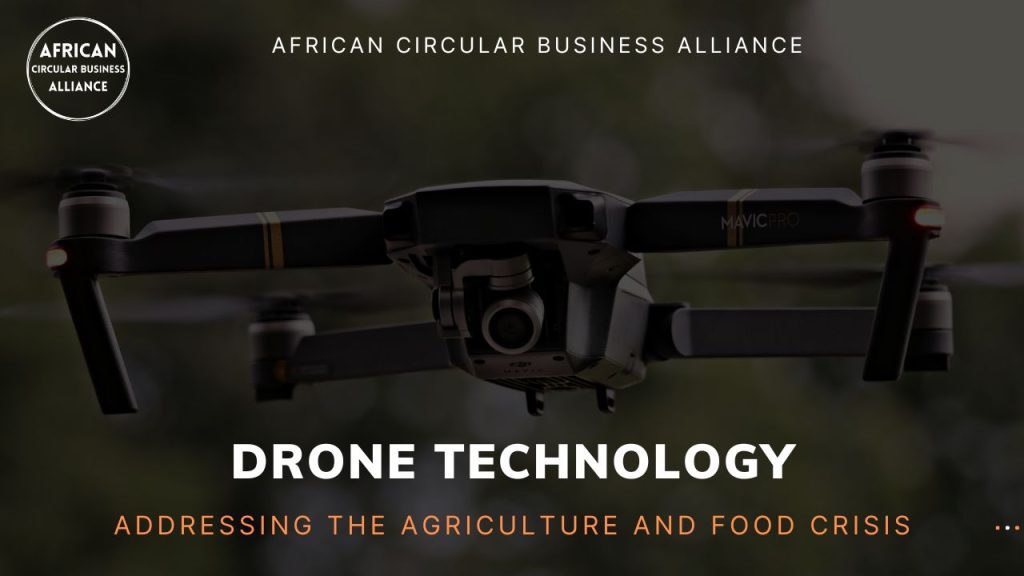
The African continent has long faced numerous challenges when it comes to food and agriculture. These challenges include issues such as limited access to land, unpredictable weather patterns, and the lack of adequate resources and infrastructure for agriculture. These challenges have contributed to a food crisis in many parts of the continent, with millions of people facing food insecurity on a daily basis.
However, the rise of drone technology is providing hope for the African continent’s food and agriculture sector. Drones, also known as unmanned aerial vehicles (UAVs), are aircraft that can be controlled remotely or fly autonomously. These devices can be equipped with sensors and cameras that provide valuable data and images of crops and farmland.
In this article, we will explore the importance of drone technology in addressing the food and agriculture crisis in Africa.
Precision Agriculture
Precision agriculture is a farming technique that utilizes technology to optimize crop yields and reduce waste. Precision agriculture involves the use of data and technology to improve decision-making and increase efficiency in agriculture.
Drones can be used for precision agriculture in a variety of ways. For example, drones equipped with multispectral cameras can provide detailed images of crops, allowing farmers to identify areas that require irrigation or fertilizer. This data can then be used to apply these inputs in a more precise and efficient manner, reducing waste and increasing crop yields.
Additionally, drones can be used to monitor crop health and identify areas affected by pests or diseases. Early detection of these issues can help farmers take corrective action before the problem spreads, reducing the risk of crop loss and improving overall yields.
Land Management
Land management is a critical aspect of agriculture in Africa, where land is often limited and subject to degradation. Drones can be used to map land and monitor changes in soil quality and vegetation cover. This data can be used to identify areas that require soil conservation measures or reforestation.
In addition, drones can be used to monitor wildlife populations and protect crops from damage caused by wild animals. This is particularly important in areas where human-wildlife conflict is a major issue, such as in parts of East and Southern Africa.
Disaster Response
The African continent is prone to natural disasters such as droughts and floods, which can have devastating impacts on agriculture. Drones can be used to provide real-time data on the extent of damage caused by these disasters, allowing farmers and relief agencies to quickly respond and provide aid.
For example, drones can be used to assess the extent of flooding and identify areas that require immediate assistance. This data can then be used to target relief efforts more effectively, reducing the impact of the disaster on local communities.
Access to Remote Areas
Access to remote areas is a major challenge in many parts of Africa, particularly in areas with poor infrastructure. Drones can be used to transport supplies and equipment to these areas, allowing farmers to access the resources they need to grow crops and manage land.
In addition, drones can be used to provide medical supplies and aid to remote communities. This is particularly important in areas with limited access to healthcare, where drones can be used to transport essential medicines and supplies to those in need.
Conclusion
Drones have the potential to revolutionize the agriculture sector in Africa, providing valuable data and insights that can improve decision-making and increase efficiency. From precision agriculture to disaster response, drones can help address many of the challenges facing the continent’s food and agriculture sector.
However, to realize the full potential of drone technology in Africa, there are a number of challenges that must be addressed. These include regulatory frameworks for drone use, the availability of skilled operators, and the affordability of drone technology for small-scale farmers.
Despite these challenges, the potential benefits of drone technology in addressing the food and agriculture crisis in Africa are immense. With the right investments and policies, drones could help transform the continent’s agriculture sector and improve the lives of millions.
